Two years ago, in Johnson v. NPAS Solutions, LLC, the Eleventh Circuit upended decades’ worth of precedent by categorically forbidding incentive payments to class representatives in class action settlements. In the past month, however, the Second and Ninth Circuits have rejected the Eleventh Circuit’s NPAS decision, concluding that there is no automatic bar of incentive awards to lead plaintiffs in class actions. This clear circuit split could prompt the Supreme Court to intervene.
How did we get here?
Let’s back up. Followers of class action jurisprudence may recall the 11th Circuit’s September 2020 decision in Johnson v. NPAS Solutions, LLC, that reversed approval of a class action settlement because of a $6,000 incentive award to the class representative, among other reasons. No matter that such incentive payments had been the norm for basically the entirety of modern class action procedure.
Instead, the Eleventh Circuit relied on two Supreme Court decisions from the 1880s, Trustees v. Greenough, 105 U.S. 527 (1882), and Central Railroad & Banking Co. v. Pettus, 113 U.S. 116 (1885). Those cases held that a plaintiff who successfully litigates to create a common fund for the benefit of the plaintiff and others cannot recover any kind of personal salary. If a plaintiff is prohibited from receiving a salary for creating a common fund, the 11th Circuit reasoned, then a class representative must also be prohibited from receiving an incentive payment for obtaining a class action recovery.
What has happened recently?
In August of this year, the Eleventh Circuit denied a petition for en banc review of NPAS. Judge Jill Pryor dissented and argued that the elimination of incentive awards “will have a very real and detrimental impact on class actions in this circuit, an impact that will be felt by the most vulnerable plaintiffs such as consumers and small businesses.”
Even before the Eleventh Circuit’s en banc decision, the Sixth Circuit in a per curiam decision rejected the argument that “service awards” to class representatives “amounted to a[n improper] bounty,” without mentioning NPAS or distinguishing Greenough and Pettus. Then, in the past month, the Second and Ninth Circuits have weighed in and created a clear circuit split.
First, in Hyland v. Navient Corp., without addressing NPAS, the Second Circuit concluded that Greenough and Pettus do not prohibit incentive awards. The Second Circuit followed its 2019 decision in Melito v. Experian Marketing Solutions, Inc., which predated NPAS by over a year, and which had concluded that Greenough and Pettus, decided decades before the adoption of Rule 23, were simply inapposite, because they did not involve class settlements and involved far greater service awards than are typically at issue for class representatives.
Then last week, in In re Apple Inc. Device Performance Litigation, the Ninth Circuit expressly rejected the Eleventh Circuit’s decision in NPAS. The Ninth Circuit reasoned that Greenough and Pettus do not categorically bar lead plaintiffs who obtain a recovery on behalf of themselves and others from receiving incentive awards, but instead simply bar incentive awards that are unreasonable or excessive. As the Ninth Circuit noted, the disapproved payment in Greenough was facially excessive: “a 10-year allowance for ‘personal services,’ equivalent today to approximately $76,000 per year, as well as ‘personal expenditures’ on ‘railroad fares and hotel bills’ worth approximately $458,000 today.” The million-plus dollar incentive in Greenough (in today’s dollars) is “a far cry” from the four figure incentive payments typically at issue in class action settlements.
What’s next?
We have a few takeaways in light of this deepening circuit split on the permissiveness of incentive awards:
- First, the split may soon be resolved by the Supreme Court. Now that the Eleventh Circuit has denied the en banc petition in NPAS, a cert petition to the Supreme Court will likely be filed. And given the clear circuit split, the Supreme Court may very well take up this issue. The availability of incentive awards is an important question of law and the circuit split features courts with categorically opposing positions.
- In the meantime, we expect that parties will continue to seek incentive awards for class representatives everywhere but the Eleventh Circuit. To date, apparently no circuit has followed NPAS, while the Second, Sixth, and Ninth Circuits have either expressly or implicitly rejected NPAS’s reasoning. Even in circuits that have not yet weighed in, we would expect parties to rely on historical precedent and continue to seek incentive awards.
- Finally, even in the Eleventh Circuit, parties may still attempt to secure incentive awards for class representatives. The rationale of NPAS is that incentive awards create an impermissible conflict between the class representative and the absent class members. Nevertheless, in June of this year, the Eleventh Circuit declined to vacate an incentive award to the class representative where the objector did not object to that incentive award. See In re Checking Account Overdraft Litig. (11th Cir. 2022). And notably, Judge Newsom, who authored NPAS, was on the panel in In re Checking Account Overdraft Litigation. Given In re Checking Account, a conditional request for an incentive award, conditioned upon either NPAS being vacated by the Supreme Court or the unanimous approval of class members as evidenced by the failure of any class member to object to the incentive award, could be permissible. Plus, even if not permissible, an incentive award would not necessarily derail the entire settlement. Instead, the Eleventh Circuit has remanded for vacatur of incentive awards without reversing settlement approval. See In re Equifax, 999 F.3d 1247, 1281–82 (11th Cir. 2021).
We will continue to monitor this issue as it develops.



 In
In